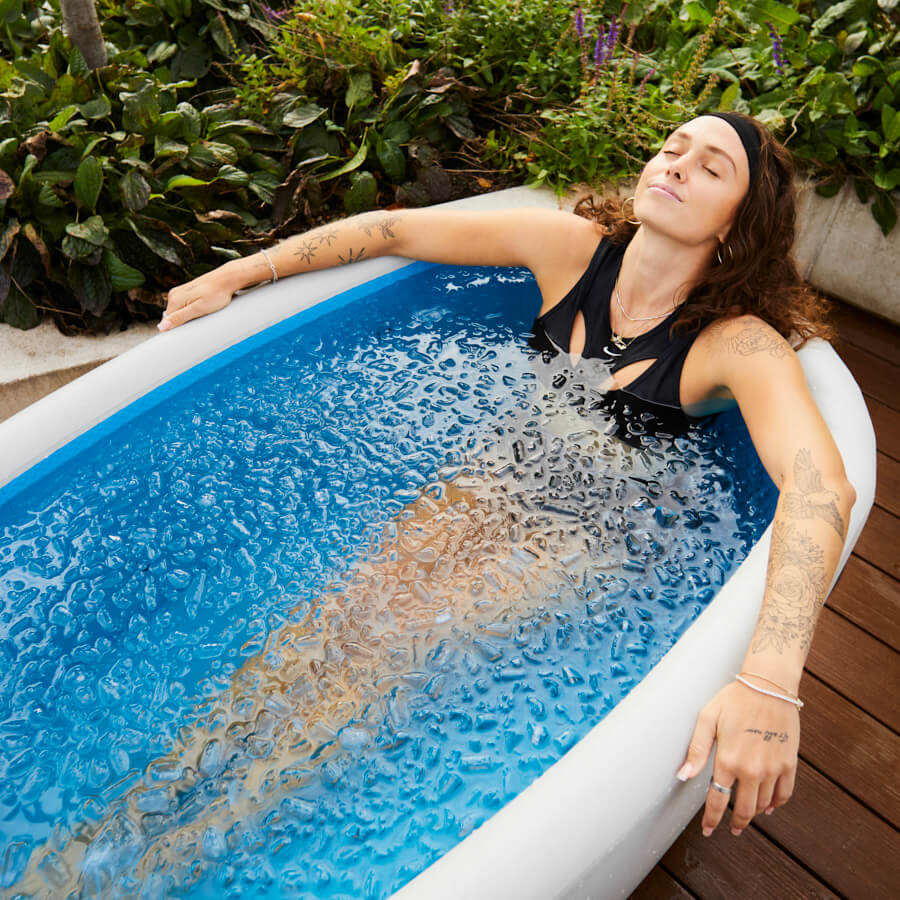A good night’s sleep is essential for overall health and well-being. It impacts everything from mood and cognitive function to muscle recovery and immune health. But in today’s fast-paced world, many struggle with sleep issues, whether it’s difficulty falling asleep, staying asleep, or feeling rested in the morning. While solutions like meditation, reducing screen time, and optimising bedroom environments are commonly suggested, a lesser-known yet powerful sleep aid is gaining traction: ice baths.

Recover, a leading brand in cold therapy, has highlighted the connection between cold water immersion and improved sleep. More athletes, biohackers, and wellness enthusiasts are incorporating ice baths into their nighttime routines to improve sleep quality. But does science back this up? Let’s discuss how ice baths impact sleep and why they might be the missing piece to your nighttime routine.
How Ice Baths Affect the Body and Sleep Patterns
When you take an ice bath, your body undergoes several physiological changes that can directly and indirectly influence sleep quality. Cold exposure activates the autonomic nervous system, affects core body temperature, and stimulates various hormonal responses.
Core Body Temperature Regulation
Your body naturally prepares for sleep by lowering its core temperature. A drop in core temperature signals the body to release melatonin, the hormone responsible for regulating sleep cycles. Ice baths accelerate this cooling process, tricking the body into initiating sleep-related responses more effectively.
Since ice baths significantly lower body temperature, they may help individuals fall asleep faster and experience deeper, more restorative sleep. Exposure to cold water has been linked to an increase in melatonin production, which plays a crucial role in maintaining healthy sleep-wake cycles.
Nervous System Reset
Ice baths activate the parasympathetic nervous system, which is responsible for relaxation and recovery. The initial shock of cold water stimulates the sympathetic nervous system (responsible for fight-or-flight responses), but as the body adapts, the parasympathetic system takes over, promoting a calm and restful state.
For those who experience high stress, anxiety, or racing thoughts at bedtime, ice baths may serve as a nervous system reset, reducing cortisol (the stress hormone) and increasing serotonin and dopamine levels, which help promote relaxation and better sleep quality.
Reduction in Inflammation and Muscle Recovery
One of the most well-known benefits of ice baths is muscle recovery. Cold water immersion reduces inflammation and muscle soreness by constricting blood vessels and slowing metabolic activity. This process, called vasoconstriction, prevents excess fluid buildup in muscles and reduces swelling.
For individuals who work out regularly, muscle soreness can sometimes interfere with sleep. By reducing post-exercise soreness, ice baths may help athletes and fitness enthusiasts sleep more comfortably and wake up feeling refreshed rather than stiff and sore.
How to Use Ice Baths for Better Sleep
If you’re considering adding ice baths to your routine for better sleep, here are a few tips to maximise their effectiveness:
Take Your Ice Bath 1–2 Hours Before Bed
Timing is crucial. Taking an ice bath right before bed might be too stimulating for some individuals. Instead, try immersing yourself in cold water 1 to 2 hours before sleep. This allows enough time for your body to go through the cooling and relaxation phase before melatonin levels peak.
Keep It Short but Effective
You don’t need to spend 20 minutes in freezing water to experience the benefits. 5 to 10 minutes at 10–15°C (50–59°F) is sufficient to activate sleep-enhancing mechanisms without overexerting your body.
Practice Deep Breathing During the Ice Bath
The initial cold shock can trigger a stress response, but deep breathing techniques, such as Wim Hof breathing, can help regulate your nervous system. Slow, controlled breaths help shift the body into a relaxed state, which carries over into your bedtime routine.
Pair with Other Sleep Hygiene Practices
While ice baths can be incredibly beneficial for sleep, they work best when combined with other sleep-friendly habits, such as:
- Avoiding screens and bright lights at night.
- Maintaining a consistent sleep schedule.
- Using blackout curtains to minimise light exposure.
- Engaging in relaxation techniques like meditation or reading.
Who Can Benefit the Most from Ice Baths for Sleep?
While ice baths can help many individuals sleep better, they are particularly beneficial for:
- Athletes & Fitness Enthusiasts – Ice baths aid in muscle recovery, reducing soreness that can interfere with sleep.
- People with High Stress or Anxiety – Cold exposure promotes nervous system balance, helping those with anxiety-induced sleep issues.
- Individuals with Poor Sleep Quality – Those who struggle with staying asleep or achieving deep sleep may benefit from the melatonin-boosting effects.
- Biohackers & Wellness Enthusiasts – People looking for natural ways to optimise their sleep cycle and overall health.
Final Thoughts
Science strongly supports the positive effects of ice baths on sleep. From lowering core body temperature and improving melatonin production to promoting relaxation and reducing inflammation, ice baths offer a natural, effective way to improve sleep quality. While they may not be a one-size-fits-all solution, many individuals report feeling more rested, relaxed and energised after incorporating them into their routine.
If you struggle with sleep issues, consider trying an ice bath routine to see how your body responds. Combined with other sleep-improving habits, ice baths might just be the game-changer your nighttime routine needs.



